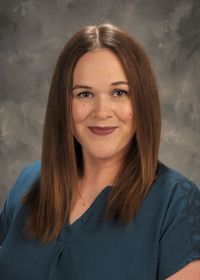Information Possibly Outdated
The information presented on this page was originally released on January 12, 2012. It may not be outdated, but please search our site for more current information. If you plan to quote or reference this information in a publication, please check with the Extension specialist or author before proceeding.
Consider special diets at reception
MISSISSIPPI STATE – A wedding reception revolves around food, whether it is a formal, sit-down dinner for 150 guests or a come-and-go affair for 75 guests.
With the prevalence of food allergies and other medical conditions, couples might want to consider serving a few foods that guests with special diets can enjoy safely.
“While it’s difficult to consider every individual diet, it’s always good to think about your guests,” said Brent Fountain, Mississippi State University’s Extension Service human nutrition specialist. “Sugar-free foods are a good option to consider, especially if you are going to serve a lot of sweet foods. Gluten-free items are a little more difficult to have on the menu because most flour-based items, like cake and quiche, are going to include gluten.”
It is especially important to include tailored options at events associated with the wedding if a member of the wedding party has special dietary needs.
“If organizers know that a key member of the wedding party has Celiac disease, for instance, it would be very good for them to include gluten-free items that they can eat,” Fountain said. “Someone like a bridesmaid, groomsman, grandparent or the bride or groom themselves, is going to be involved in several activities that revolve around the wedding, such as the rehearsal dinner, showers, and bridal luncheons.”
Common food allergies, including those to fish, shellfish, wheat, soy, eggs, dairy, tree nuts and peanuts, can cause severe problems for reception guests.
“Nuts are of great concern because of the severity of the reaction for some people,” Fountain said. “There is such a wide divide in the degree of the reaction for each individual. For some people it takes only a small amount to cause a serious, life-threatening reaction.”
The best advice, Fountain said, is for couples to make their caterer aware of any special dietary needs and to clearly mark foods so people know if they include a known allergen.
“We always try to identify our dishes,” said Dianne Morgan of Dianne Morgan Catering in Hattiesburg. “We really have to be concerned about seafood and nuts.”
Morgan said she doesn’t have many couples who request special menus for special diets, but her menus are prepared from scratch, and she takes precautions to avoid common allergens.
“I read labels on everything,” Morgan said. “Nothing I use is already prepared. I do not use anything that includes MSG, and I am careful with nuts and seafood. Someone with a really severe nut allergy could have a reaction if I were to use a product that did not contain nuts but was processed in a plant that also processes nuts.”
Taking such precautions usually doesn’t increase the cost, Fountain said, but couples should make their caterer aware of any special diet needs at the first consultation so that the caterer can give them a more accurate estimate.







